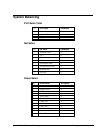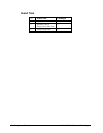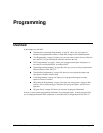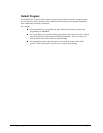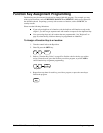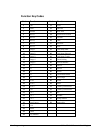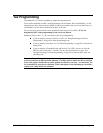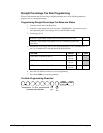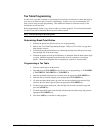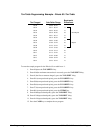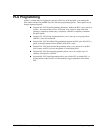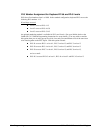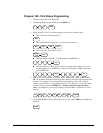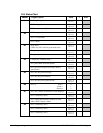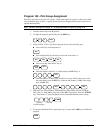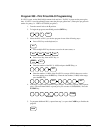
SAM4s ER-5115 Electronic Cash Register Programming
95
Tax Table Programming
In some cases, a tax that is entered as a percentage does not follow exactly the tax charts that apply in
your area (even if the tax chart is based on a percentage). In these cases, we recommend that you
enter your tax using tax table programming. This method will match tax collection exactly to the
break points of your tax table.
Before programming, obtain a copy of the tax table you wish to program. You will need the printed
tax table if you wish to determine the break point entries yourself.
Note: You can enter up to 60 break points.
Determining Break Point Entries
1. Examine the printed tax table for the tax you are programming.
2. Refer to the “Tax Table Programming Example - Illinois 6% Tax Table” on page 96 to
help with this exercise.
3. Calculate the break point differences by subtracting the high side of the previous range
from the high side of the dollar range.
4. Examine the pattern of break point differences to determine when the break points begin
to repeat. Mark the beginning break points that do not fit a pattern as “non-repeat
breaks.” Mark the break points that are repeating in a pattern as “repeat breaks.”
Programming a Tax Table
1. Turn the control lock to the P position.
2. Enter 10, press the TAX SHIFT key for the tax you are programming, i.e. TAX SHIFT
1, TAX SHIFT 2, TAX SHIFT 3 or TAX SHIFT 4.
3. Enter the maximum amount that is not taxed, press the appropriate TAX SHIFT key.
4. Enter the first tax amount charged, press the appropriate TAX SHIFT key.
5. For each non-repeat break point, up to the last non-repeat break point, enter the high
side from the sale dollar range and press the appropriate TAX SHIFT key.
6. For the last non-repeat break point, enter the high side from the sale dollar range and
press the X/TIME key.
7. For each repeat break point, enter the high side from the sale dollar range and press the
appropriate TAX SHIFT key.
8. Press the CASH key to end the tax table program.



